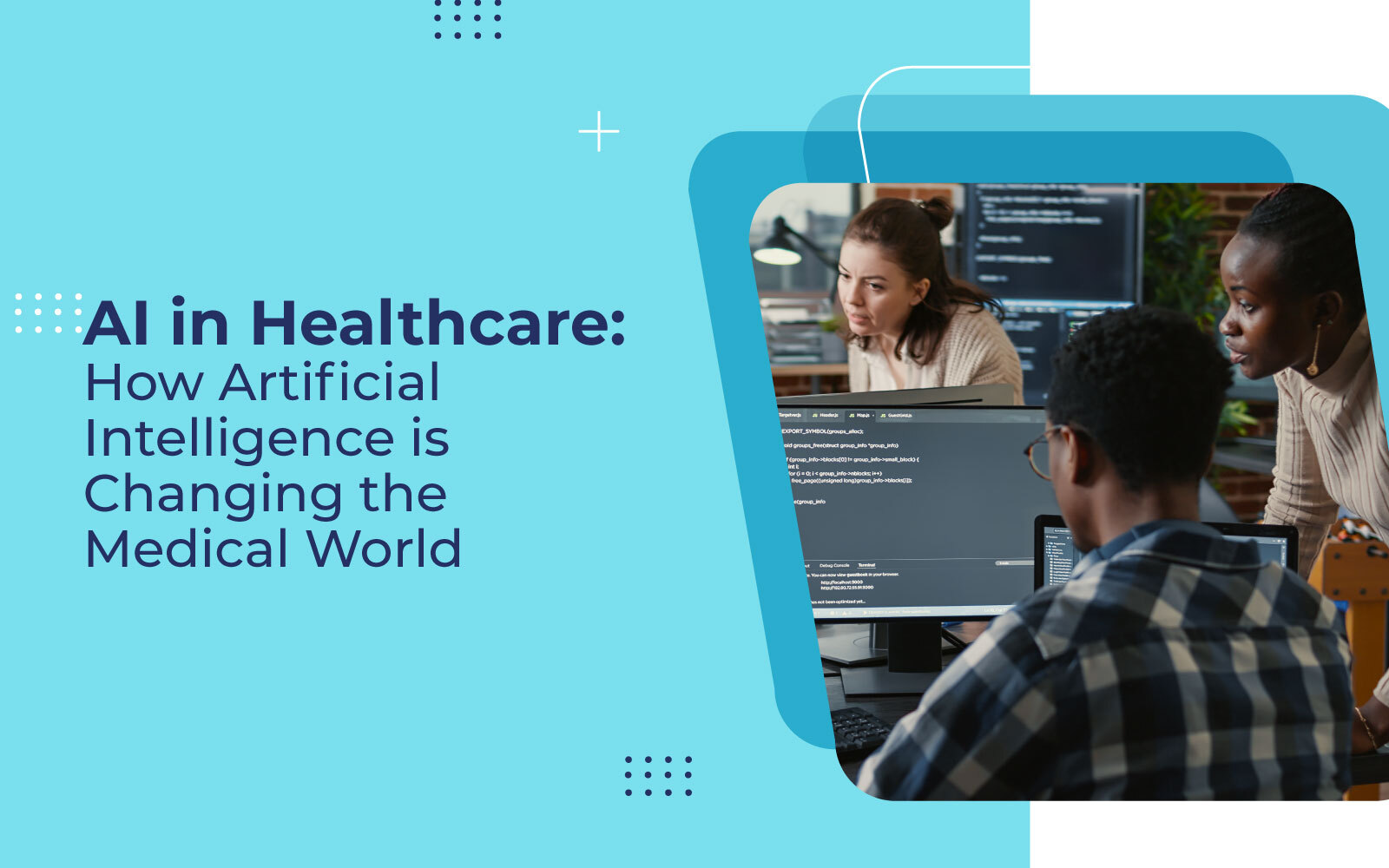
22 Jun 2022
AI in Healthcare: How Artificial Intelligence is Changing the Medical World
One of the biggest problems we’re facing in healthcare today is that we have too many sick people and not enough doctors to take care of them. Even before the pandemic created a huge backlog of patients waiting for testing, surgery, and treatment, we were seeing long waiting times to see doctors, to get a diagnosis, and to get treated.
There are also other hot topics to consider when we’re talking about healthcare in general. Taking better care of our health would lead to less people needing to see a doctor in the first place, detecting diseases earlier may lead to less treatment being necessary, diagnosing more accurately could lead to lower mortality rates, but how do we go about doing all these things?
It turns out, there’s one way to solve all these problems and more. AI (or artificial intelligence) is revolutionising the way things are being done in healthcare. “AI is getting increasingly sophisticated at doing what humans do, but more efficiently, more quickly and at a lower cost. The potential for both AI and robotics in healthcare is vast,” says PWC. “Just like in our every-day lives, AI and robotics are increasingly a part of our healthcare eco-system.”
So, how is AI being used in healthcare currently, and what does the future look like?
APPs to Help us Stay Healthy
There is a myriad of APPs now available to help us track our health. From diet and exercise to symptom checking and appointment reminders, we’re now able to monitor our weight, heartrate, sleep patterns, and symptoms on our personal devices.
Being over or under weight can lead to many health problems, as can lack of sleep and not enough physical exercise. AI is helping us live healthier lives and hopefully we’ll be making fewer trips to the doctor for issues that are within our control.
Detecting Diseases Earlier
“AI is already being used to detect diseases, such as cancer, more accurately and in their early stages,” says PWC. “The use of AI is enabling review and translation of mammograms 30 times faster with 99% accuracy, reducing the need for unnecessary biopsies.”
Being able to detect diseases sooner will reduce mortality rate and potentially decrease the amount of treatment needed by a patient, making their journey back to health easier and quicker, and saving a lot of money on treatment costs and surgeries.
More Accurate Diagnostics
“AI in diagnostics has the potential to make high quality healthcare more accessible and affordable by assisting healthcare providers to more quickly make the most appropriate treatment decisions for their patients,” says HealthcareTransformers.com. “The power of AI to help diagnose diseases at their early stage was recently highlighted in a study that evaluated its use to identify COVID-19 positive patients.”
An article by Healthcare Digital explains “researchers found that a so-called counterfactual algorithm – one that predicts outcomes after testing whether changing certain variables would yield the same result – outperformed 75% of doctors in accurately diagnosing patients.” So, could we start seeing more and more AI diagnostics? With better accuracy and faster results, it seems that it may well be the future when it comes to establishing what is wrong with a patient.
AI is also helping with treatment, research, and teaching in the medical world, and it seems the possibilities and potential are endless and incredibly exciting. AI is revolutionising healthcare and hopefully, in the next couple of years, we’ll begin to reap the benefits of healthier lives, quicker diagnosis, and more efficient treatment.




